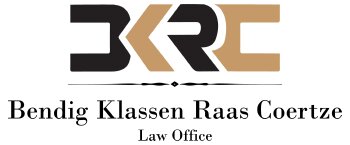Best Drunk Driving Lawyers in Prince Albert
Share your needs with us, get contacted by law firms.
Free. Takes 2 min.
List of the best lawyers in Prince Albert, Canada
About Drunk Driving Law in Prince Albert, Canada
Drunk driving, often referred to as impaired driving, is taken very seriously in Prince Albert, Canada. Governed primarily by the Criminal Code of Canada and provincial legislation, driving under the influence of alcohol or drugs can lead to severe penalties, including license suspension, fines, and even imprisonment. Prince Albert, like the rest of Canada, enforces strict measures to discourage impaired driving and ensure the safety of all road users.
Why You May Need a Lawyer
If you are involved in a situation concerning drunk driving, it may be beneficial to seek legal advice. Common scenarios include being charged with a DUI (driving under the influence), facing potential license suspension, or needing representation in court. A lawyer can provide guidance on your rights, possible defenses, and the legal processes involved, helping to mitigate consequences and ensure fair treatment under the law.
Local Laws Overview
In Prince Albert, as in the rest of Saskatchewan, the legal blood alcohol concentration (BAC) limit is 0.08%. For new drivers, the tolerance is stricter with a zero BAC limit. Police may conduct roadside checks and demand breath samples for testing. Refusing such a test can lead to charges similar to a DUI. Additionally, the province supports immediate roadside suspensions and vehicle impoundments for those caught driving under the influence.
Frequently Asked Questions
What qualifies as impaired driving?
Impaired driving includes operating a vehicle while your ability to do so is impaired by alcohol, drugs, or both.
What are the penalties for drunk driving?
Penalties can include fines, license suspension, vehicle impoundment, and even imprisonment, depending on the severity of the offense and whether it is a repeat offense.
Am I obliged to participate in roadside alcohol screening tests?
Yes, refusal to comply with a demand for a breath sample can result in charges similar to those for impaired driving.
What if I am a repeat offender?
Repeat offenses result in more severe penalties, including longer license suspensions, higher fines, and mandatory participation in educational or rehabilitation programs.
Can I represent myself in a drunk driving case?
While you have the right to represent yourself, it is advisable to seek legal counsel due to the complexities of the law and potential severe consequences.
What happens if I refuse the breathalyzer test?
Refusal typically results in charges equivalent to or greater than if you had failed the test, including similar penalties.
What are the immediate consequences upon arrest for DUI?
Immediate consequences often include license suspension, vehicle impoundment, and arrest. These actions are enforceable even before a court conviction.
Do I need to attend court if charged with drunk driving?
Yes, you are required to attend court hearings. Failing to do so may result in additional legal penalties.
Can I challenge a drunk driving charge?
Yes, legal defenses are available, such as questioning the accuracy of testing equipment or the legality of the traffic stop.
Do penalties for impaired driving vary based on BAC levels?
Yes, higher BAC levels can lead to more severe penalties. For first offenses, the penalties increase significantly if the BAC is 0.16% or higher.
Additional Resources
For those seeking information or assistance regarding impaired driving, consider contacting organizations such as MADD Canada, the Saskatchewan Government Insurance (SGI), or the Saskatchewan Provincial Court, which offers resources and assistance for legal issues related to traffic offenses. Additionally, Prince Albert Police Service can provide local enforcement details and prevention tips.
Next Steps
If you need legal assistance in a drunk driving case, it is advisable to consult a lawyer who specializes in DUI laws. Begin by researching local legal experts, and consider arranging a consultation to discuss your case specifics. Collect any documentation related to your charges, such as police reports or test results, to provide to your lawyer. Ensure you understand your rights and the potential repercussions of your charges, and work with your legal representative to build a strong defense.
Lawzana helps you find the best lawyers and law firms in Prince Albert through a curated and pre-screened list of qualified legal professionals. Our platform offers rankings and detailed profiles of attorneys and law firms, allowing you to compare based on practice areas, including Drunk Driving, experience, and client feedback.
Each profile includes a description of the firm's areas of practice, client reviews, team members and partners, year of establishment, spoken languages, office locations, contact information, social media presence, and any published articles or resources. Most firms on our platform speak English and are experienced in both local and international legal matters.
Get a quote from top-rated law firms in Prince Albert, Canada — quickly, securely, and without unnecessary hassle.
Disclaimer:
The information provided on this page is for general informational purposes only and does not constitute legal advice. While we strive to ensure the accuracy and relevance of the content, legal information may change over time, and interpretations of the law can vary. You should always consult with a qualified legal professional for advice specific to your situation.
We disclaim all liability for actions taken or not taken based on the content of this page. If you believe any information is incorrect or outdated, please contact us, and we will review and update it where appropriate.








